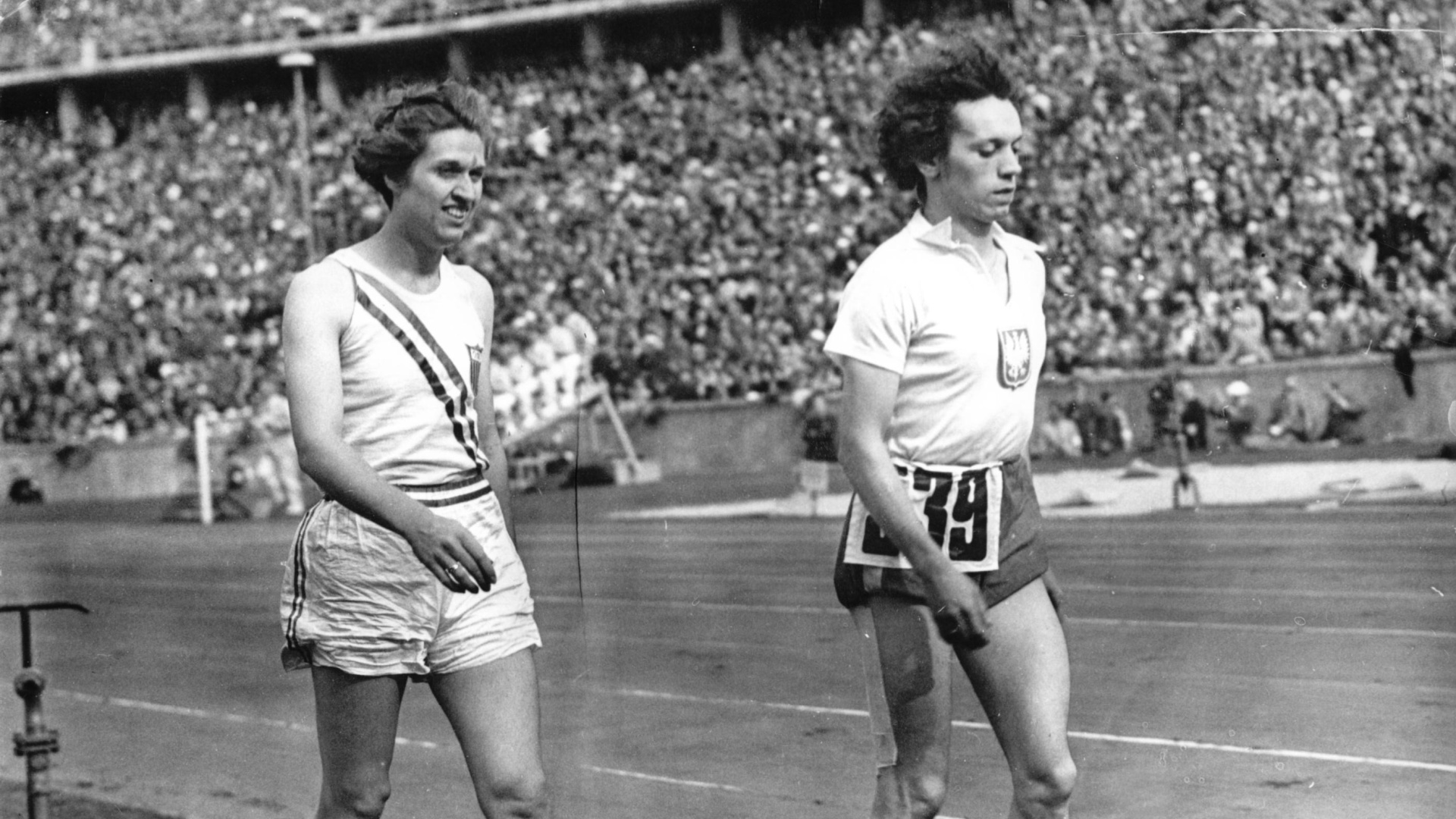The most shocking Olympics scandals you never knew about
The Olympics celebrates hard work, training and beautiful sportsmanship. It has brought people and countries together and inspired many young people to strive for their goals and reach for their dreams. Despite this, there have been a few darker moments in the history of the Olympics that will make your jaw drop.
Twenty years before American women could vote, they were allowed to compete in the Olympics, causing great controversy.
The first year they could only compete in five events: tennis, equestrian, sailing, croquet, and golf, but it was still a pretty huge deal. Briton Charlotte Cooper became the first female individual champion by winning the women's singles tennis competition on July 11. It was a real step forward for women, despite the controversy it caused.
In 1936, defending 100-meter dash gold medalist Stella Walsh (right) of Poland lost the race to American Helen Stephens (left). Walsh's supporters reacted badly. They responded by crying out that Stephens's time was simply too fast for a woman, and demanded that a gender examination be performed.
Stephens submitted to the humiliating test, permitting the Olympic committee perform a physical examination to confirm that she was indeed a woman.
But the story doesn't end there. Decades later, Stella Walsh was shot to death outside a shopping mall in 1980, and when they performed an autopsy, it was discovered that Stella Walsh, not Helen Stephens, actually had male genitalia.
Tensions between Hungary and the Soviet Union were running high in 1956 but these pressures trickled down to an Olympics water polo match between Hungry and the soviet union which gave spectators more than what they were expecting from an Olympics game.
Referees were forced to end the game after players let their tension levels boil over and began throwing punches at one another in the water, some even drawing blood.
In 1960, "barefoot" style running wasn't as common as it is today. But Ethiopian Abebe Bikila made barefoot running the talk of the entire world when he won the marathon without footwear, despite all the nice shoes he'd been sent by Adidas.
Ewa Kłobukowska, a Polish sprinter, competed in the 4×100 meter relay and the 100-meter sprint and took home a gold and a bronze medal, respectively. But in 1967, she failed a gender test and was stripped of her 1964 medals.
But again the story doesn't end there. After Klobukowska gave birth to her son years later, people realized that she must have had a genetic abnormality that made her have one chromosome too many. Proving that Gender testing is flawed.
(Photo: Acc. 90-105 - Science Service, Records, 1920s-1970s, Smithsonian Institution Archives)
During the medal ceremony, American athletes John Carlos and Tommie Smith wore black gloves and made the Black Power salute. It was a political statement about civil rights, and in doing this they were kicked out of the games by the IOC chair.
The silver medalist, Australian Peter Norman, may look like he's not participating, but he's actually making a statement too. He was wearing a human rights badge on his uniform. Thirty-eight years later when Norman died, both Carlos and Smith were pallbearers at his funeral.
1972 was the year that Soviet gymnast Olga Korbut performed the famous and now-banned gymnastics move known as the "Korbut flip." the Korbut flip involves the gymnast standing on the high bar, doing a back flip and then re-grasping the bar. It's now outlawed because of the risk in performing it.
The Soviets celebrate a victory over United States. 1972 brought the first ever loss for Team USA basketball since the sport began in 1936....but that wasn't why it was so shocking. It was how they lost.
With just three seconds left on the clock, the Russians were losing, and the officials unexplainably gave them another chance to inbound the ball after unsuccessfully attempting it once. This is not in the rules. Forty years later, it is still controversial and it's still disputed if they should've been allowed to inbound and hit the buzzer beater that won them the gold in a victory of 51-50 over the unhappy Americans.
1976 was the year Romanian Nadia Comaneci became the first gymnast to score a perfect 10 in an Olympic gymnastics event. Why is this such a scandal, you ask?
This was an unprecedented feat that there was no way to relay what had happened, with the score registering as "1.00" on the scoreboard because 9.99 was the board's limit!
During the women's 3000-meter race, American Mary Decker clashed with South African born Zola Budd, causing Decker to fall completely and lose the race. It appeared as if the American caught Zola Budd on the calf with her spikes.
Mary Decker was inconsolable. Decker blamed Budd, and Budd blamed Decker, and, to this day, neither has ever taken the responsibility.
American diver Greg Louganis hit his head on the diving board in the preliminary rounds of the Olympics. He suffered a concussion after the shocking accident, and yet he went on the win the gold. Another shocking twist to an Olympics story.
Canadian sprinter Ben Johnson won the 100-meter race but the sweet feeling of victory was cut short. He was disqualified three days later for doping and stripped of his medal.
When the judges declared that American Roy Jones Jr. officially lost the championship fight to South Korean Park Si-Hun, there was outrage: Most people there believed Roy Jones Jr. should have clearly been the winner—and with good reason.
Jones outboxed Park for three rounds, landing 86 punches to Park's 32. Some time later the judges admitted to having been wined, dined and wooed by the South Korean officials and pressured to award the medal to the South Korean.
At the 2000 Olympics, Australian gymnast Alana Slater speculated that the vault wasn't positioned at the right height, and when they measured it, they discovered that she was right: It was two inches lower than the official height, therefore messing with people's routines. Five gymnasts were given the option to redo the event, but it definitely caused disruption and threw many off their game before the error was discovered.
Romanian gymnast Andrea Răducan asked her coach for something to cure her cold during the Olympics, he gave her Nurofen, an everyday, over-the-counter cold medicine. It effectively ruined her whole 2000 Olympics simply by not checking the ingredients.
Nurofen contains pseudophedrine, an illegal substance for Olympic athletes, it is a nasal decongestant. After being drug tested, Răducan was stripped of one of her gold medals for the violation. A heartbreaking mistake.
Twenty two miles into the marathon, British athlete Paula Radcliffe collapsed and was incapable of finishing the race. She took lots of criticism from the press stating that she should've carried on and at least try to walk it, it is still unknown as to whether she pulled out because she knew she would not catch Japanese winner Mizuki Noguchi, or because she actually physically could not continue.
But the fact that people questioned her "intentions" was in itself a scandal, many people claiming the British press was being unfairly hard on Radcliffe because she was a woman.
He Kexin, a Chinese gymnast, won two gold medals during the 2008 Olympics. At the same time as dealing with speculation that she shouldn’t be allowed to compete. Her passport stated she was 16 years old at the time of the Olympics, several other registration systems flagged something else entirely.
Some registrations featured a 1994 birthday for her, making her 14 during the Olympics and therefore ineligible. After the 2008 Olympic team final, Kexin spoke to the press stating, "My real age is 16. I don't care what other people say," and the IOC agreed to leave it at that.
After he was disqualified for taking too long on an allotted time-out, Cuban Taekwondo athlete Angel Matos attacked two officials. Both he and his coach were banned for life from the Olympics.
South Korean fencer Shin Lam had a one-point lead over German Britta Heidemann in a semifinal match-up when the clock inexplicably gave the German a split-second advantage.
The time glitch was enough to essentially give Heidemann the victory over Lam. Then, because of the official rules, Lam had to remain on the mat for one hour while the judges reviewed the appeal. Despite the wait, in the end it was ruled a German victory.
The Olympics in Rio de Janeiro were filled with controversy, crime, political unrest and stress for organisers and competitors alike. On the 4th of August, Nigeria played Japan in the men's football group stages but the organisers made a serious error. When the national anthem for Nigeria was meant to be played, the Niger national anthem was incorrectly played instead. Ooops.














































